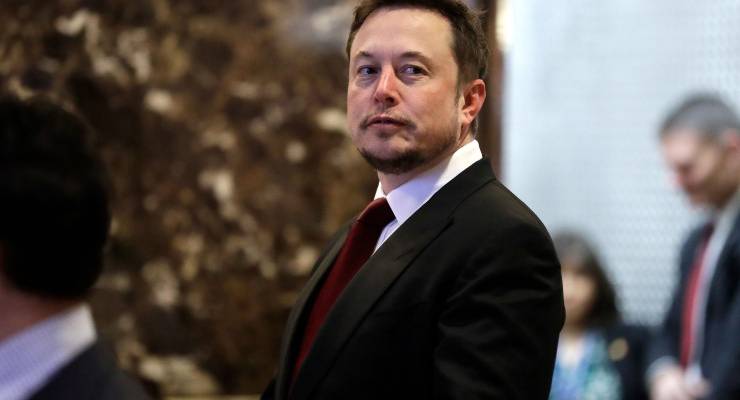
Elon Musk’s eventual decision to buy Twitter is predictable. Not because it makes much sense for a reasonable person. A reasonable person would assume deciding to stump up US$40-something billion to buy a social network would be a big enough decision that it would take something monumental to change your mind just a month later.
It’s predictable because it’s Elon Musk and we should expect the most non-serious decision at every juncture.
Every turn of the saga — from submitting a bid at the meme price of US$54.20 a share, to getting cold feet (probably because of his shrinking wealth), to citing disingenuous reasons for backing out, to challenging a seemingly bulletproof legal agreement to buy the company, to now, suddenly, agreeing to buy the company — makes total sense when you consider that Musk is:
- Extremely rich and used to getting what he wants
- Arrogant enough to think that he is intelligent enough to solve a platform’s problems when a company filled with individuals who’ve dedicated much of their working lives trying to improve the service has not
- At least smart enough and always willing to make a decision in his own self-interest in the short term, no matter what it means for anyone else.
If you need any further clue as to the way Musk conducts himself, cast your eyes over these text messages revealed as part of the now-aborted lawsuit’s discovery process.
As some of the world’s richest and most powerful people grovelled at his feet, Musk proposed ideas that would drastically change Twitter and accepted fundraising offers worth $1 billion with the same amount of effort that it takes to order Uber Eats. Maybe that’s the way billionaires operate; it’s nonetheless quite jarring to consider how casually decisions that would affect one of the world’s most important social networks are being hashed out.
Musk’s Twitter takeover has felt chaotic so far, but really, the chaos is only the beginning. Once he and whoever is funding his takeover gets their hands on the lever, will they implement Musk’s thought-bubble ideas no matter the consequences? Or will cooler and more experienced heads prevail as the new owners compromise with the company’s staff about how to implement some of the proposals? Will loyal staff stick around? So far this takeover has been all about the posturing of extremely rich men — but it’s about to start having real-world consequences.
There will be a lot of commentary about whether Musk or Twitter’s shareholders won out of this deal. What of Twitter’s users? Musk’s vision of the platform under his leadership is all about improving the user experience for him — a platform power user — and not the average poster. Similarly, shareholders are being richly rewarded for selling the platform, with little concern for who is buying it.
What happens next? If you buy into the Elon-Musk-as-Tony-Stark myth, then you’d expect this hands-on billionaire genius to drastically overhaul the platform (for better or for worse, depending on your beliefs). But the most Musk-y outcome would be to buy the company, hand down a few edicts about changes and then mostly leave its running to others, popping back in occasionally to personally announce some of the new, most exciting features. Because, after all, it’s not all that serious to him.








The more I hear about this Musk fella, the less I care for him.
He’s a genius, but very erratic.
Genius? By what definition? He was not a founder of PayPal nor of Tesla. He bought his way into these. He has a genius for self-promotion and knows how do do this with his money.
What about Spacex? Visionary. And where did the money come from? You must allow him some financial genius, at least.
Another Trumpian-Kardashian entitled, attention-seeking tool, catering to society’s intellectually deprived
the problem with the Elon-Musk-as-Tony-Stark thing is, for it work, Musk would first need to be almost killed by one of his products, and then captured by terrorists and tortured, while in the presence of a decent human being, so that he can learn the error of his ways
… oh, and he’d need a heart
I was thinking more – The Man who Fell to Earth.
For those who care, it might be worth checking out this link: The 7 Best Twitter Alternatives in 2022 (lifewire.com).
I haven’t looked at any of the suggested alternatives, because I don’t use Twitter and so am not interested in them. What does interest (and concern) me, however, is seeing any internet supplier or platform promoted as essential in some way. The whole point of the internet is that it doesn’t have a single point of either failure or control, whether this failure comes from nuclear warfare (which was what the original designers of the internet feared) or from one overly wealthy narcissist acquiring one small part of it.
People have power. Whether or not they choose to exercise it is up to them.
Legends in their own minds?
By coincidence Counter Punch had article today titled ‘Tech Billionaires are Actually Dumber Than You Think‘ by Kolhatkar including Musk, but also Adani.
The author implied, quite directly, that these types have had no substantive or informed life, and had ideas that could be viewed as both bonkers and paranoid, because they fera money cannot buy you everything.